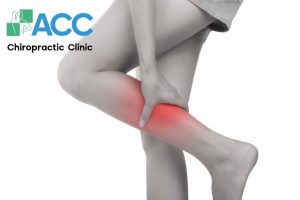Contents
Experiencing numbness in the fingertips can make it challenging to grasp or hold objects, as finger control becomes impaired. This condition is often accompanied by sensations such as tingling or prickling in the affected fingers.
Fingertip numbness may come and go quickly, but in some cases, it can persist for an extended period, significantly impacting daily activities. When prolonged, it may serve as a warning sign of underlying health issues that require medical attention.
What is numbness in the fingertips?
Numbness in the fingertips refers to a sensation of reduced or lost feeling in the tip or entire finger, often described as tingling, prickling, or a sensation similar to being lightly pricked by a needle. In some cases, it may be accompanied by a burning pain, making it difficult to grasp objects, pick things up, or perform delicate movements.
Symptoms can appear intermittently or persist to the extent that normal hand function is impaired. If you frequently experience numbness in your fingertips, seeking medical evaluation is essential for timely diagnosis and treatment.
What Diseases Can Numbness in the Fingertips Indicate?
Numbness in the fingertips may serve as an early warning sign of several serious health conditions, particularly those related to the nervous system, bones, and joints. Below are some common medical conditions associated with fingertip numbness:
Peripheral Neuropathy
Peripheral neuropathy occurs when the nerves responsible for transmitting signals from the brain and spinal cord to other parts of the body become damaged. This condition can lead to a loss of sensation in the hands, especially in the fingertips.
The most common cause of peripheral neuropathy is physical trauma. However, it can also develop due to other factors such as vitamin B12 deficiency, diabetes, excessive alcohol consumption, and certain infections.
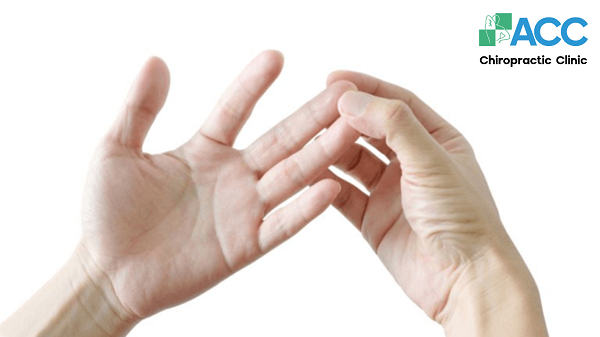
Alcohol Use Disorder
Chronic heavy alcohol consumption can lead to alcoholic polyneuropathy, a condition that damages the nerves. Symptoms may include:
- Tingling or numbness in the fingers, arms, legs, or feet.
- A burning or prickling sensation in the hands.
- Muscle weakness, cramping, or spasms.
- Difficulty swallowing food or liquids.
Cervical Radiculopathy
Also known as cervical-brachial syndrome, cervical radiculopathy occurs when nerves in the neck become compressed due to cervical spondylosis or a herniated cervical disc. Because these nerves are responsible for transmitting signals to the fingers, any damage can result in numbness, tingling, or pain in the fingertips.
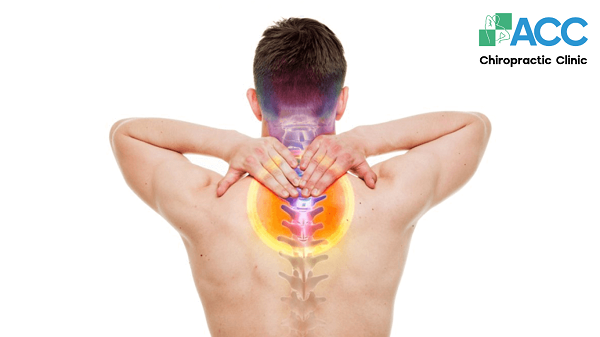
Fibromyalgia
Fibromyalgia is a chronic disorder that causes widespread pain, fatigue, and numbness in different areas of the body, including the fingertips. Other symptoms often include:
- Sleep disturbances.
- Chronic headaches or migraines.
- Difficulty concentrating and memory issues.
- Increased risk of developing carpal tunnel syndrome.
Carpal Tunnel Syndrome
Carpal tunnel syndrome is a common condition caused by the compression of the median nerve within the carpal tunnel. This nerve controls movement and sensation in the wrist, hand, and fingers. When compressed, it can lead to:
- Numbness, particularly in the thumb.
- Tingling or discomfort in the index and middle fingers.
- Weakness in hand grip and difficulty holding objects.
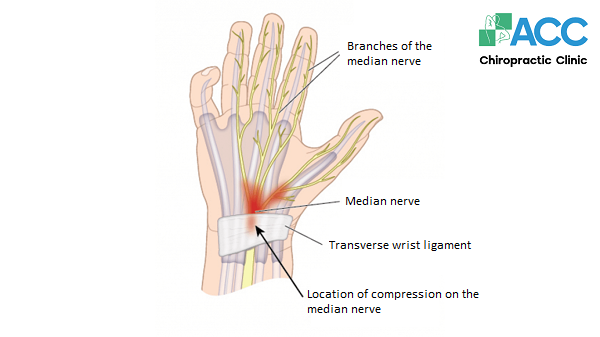
Raynaud’s Disease
Raynaud’s disease causes the small arteries in the fingers to spasm, temporarily restricting blood flow. Over time, this can lead to numbness in the fingertips and poor circulation throughout the body.
Rheumatoid Arthritis (RA)
Rheumatoid arthritis is an autoimmune condition that leads to joint inflammation, stiffness, and pain. In many cases, RA can also cause numbness, tingling, and a burning sensation in the fingertips.
Diabetes
Uncontrolled diabetes can result in nerve damage, leading to diabetic neuropathy. Typical symptoms include:
- Numbness or tingling in the fingers, hands, legs, or feet.
- Muscle weakness and cramping.
- Slowed reflexes and coordination difficulties.
Ulnar Nerve Compression
Unlike the median nerve, which affects the thumb, index, and middle fingers, compression of the ulnar nerve primarily affects the ring finger and sometimes the little finger. Symptoms include loss of sensation, tingling, and weakness in the affected fingers.
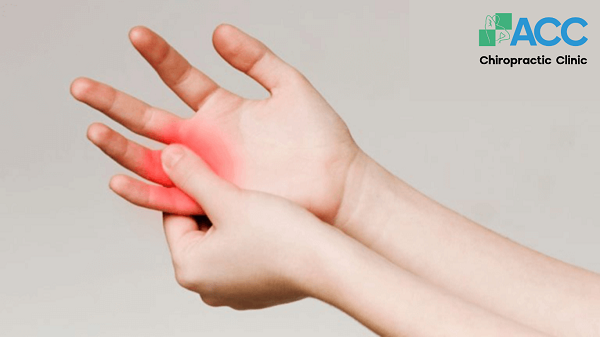
Other Conditions Linked to Fingertip Numbness
- Stroke.
- Ganglion cysts.
- HIV/AIDS.
- Multiple sclerosis.
- Sjogren’s syndrome.
- Shoulder injuries.
- Infections such as Lyme disease and syphilis.
- Vitamin B12 deficiency.
- Hansen’s disease (leprosy).
- Fractures or injuries to the wrist or hand.
If you experience persistent or recurrent numbness in your fingertips, it is crucial to consult a medical professional for a thorough evaluation and appropriate treatment.
Why timely Treatment Matters?
In many cases, fingertip numbness is mild and resolves on its own without requiring medical intervention. However, when caused by underlying health conditions, seeking timely treatment is essential.
Early intervention not only increases the chances of successful treatment but also helps prevent severe complications, such as permanent nerve damage or even paralysis, which can significantly impact a person’s quality of life.
Diagnosis and Treatment of Fingertip Numbness
Diagnostic Methods
Doctors typically begin by reviewing a patient’s medical history and conducting a physical examination, focusing on the arms, hands, and fingers to identify any abnormalities.
MRI scans are one of the most effective diagnostic tools for detecting nerve compression in the neck, shoulders, arms, wrists, or fingers. This imaging technique helps doctors determine whether nerve function is being affected.
In some cases, blood tests may be required to identify underlying causes of fingertip numbness, such as rheumatoid arthritis or vitamin B12 deficiency.
Treatment Methods for Fingertip Numbness
With advancements in the medical field, treating numbness in the fingertips has become more manageable. Patients now have several treatment options, ranging from simple exercises to advanced therapies.
Finger Stretching Exercises
A common and effective way to alleviate fingertip numbness at home is through hand and wrist stretching exercises. These exercises improve flexibility, reduce discomfort, and help restore normal function. Some recommended movements include:
- Straightening the fingers as much as possible and holding the position for about 10 seconds.
- Rotating the wrist clockwise 10 times, then reversing the motion to relieve tension.
- Rolling the shoulders forward and backward about five times to relax the joints and enhance mobility.
Consistently performing these exercises can help relieve pressure on the nerves and reduce symptoms of numbness.
Pain Relievers
Nerve damage can cause not only numbness but also persistent or sharp pain. Many individuals opt for over-the-counter non-steroidal anti-inflammatory drugs (NSAIDs), such as aspirin or ibuprofen, to manage discomfort.
However, NSAIDs only provide temporary relief and do not address the root cause of the problem. Once the medication wears off, symptoms are likely to return.
Misuse of pain relievers—such as increasing the dosage or using them for prolonged periods—can lead to serious health risks, including toxicity and damage to the liver and kidneys. Therefore, it is crucial to use these medications strictly as prescribed by a doctor.

Surgical Treatment
Surgery is an option for repairing nerve damage in severe cases, but it is generally not the first choice due to potential risks. Surgical procedures can carry complications such as infections, capillary damage, and excessive bleeding. Additionally, there is no guarantee that the numbness will not return after surgery.
Because of these risks, medical professionals increasingly recommend non-invasive treatments to protect patient health and well-being.
Comprehensive Treatment at ACC: The Optimal Solution for Fingertip Numbness
Since numbness in the fingertips is often linked to nerve compression, addressing spinal misalignment can be a key solution. The spine plays a crucial role in overall nerve function—when vertebrae shift out of place, they can put pressure on surrounding nerves, leading to pain and discomfort throughout the body.
Chiropractic care, a non-invasive treatment method, focuses on restoring proper spinal alignment through precise manual adjustments. By correcting spinal misalignment, Chiropractic therapy relieves nerve pressure, promotes healing, and effectively eliminates fingertip numbness without the need for surgery or medication.

In Vietnam, ACC Chiropractic Clinic – a member of FV Group and Thomson Medical Group Singapore has been a pioneer in Chiropractic for over 19 years, with a hundred thousands track record. With a team of highly experienced international doctors, ACC offers comprehensive treatment plans that combine Chiropractic with advanced physiotherapy techniques and holistic Rehabilitation programs. These include:
- Class IV Laser for deep tissue healing.
- Shockwave Therapy to promote nerve regeneration.
- Cervico 2000 Cervical Decompression Device to relieve pressure on the cervical spine.
- Personalized Programs with tailored nutrition advice and rehabilitation plans for long-term recovery and enhanced quality of life.
Through the holistic treatment, many patients have successfully regained full sensation in their fingertips, allowing them to resume daily activities without discomfort.

Fingertip numbness can sometimes indicate serious nerve-related conditions. Left untreated, these issues can lead to irreversible complications. If you experience persistent numbness in your fingers, seek medical attention from a trusted specialist to ensure timely diagnosis and effective treatment.
Contact us now via Hotline/WhatsApp: +84 946 740 066 for booking an appointment or further inquiries with our doctor’s assistant team.



